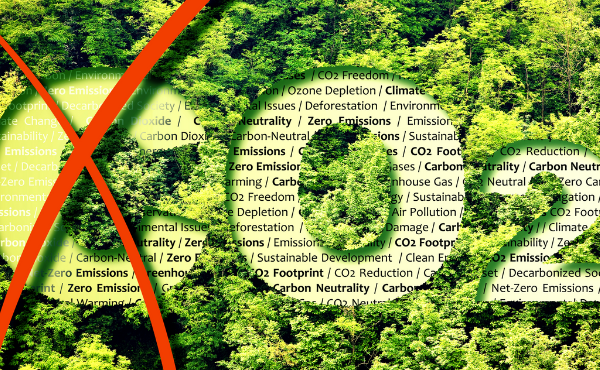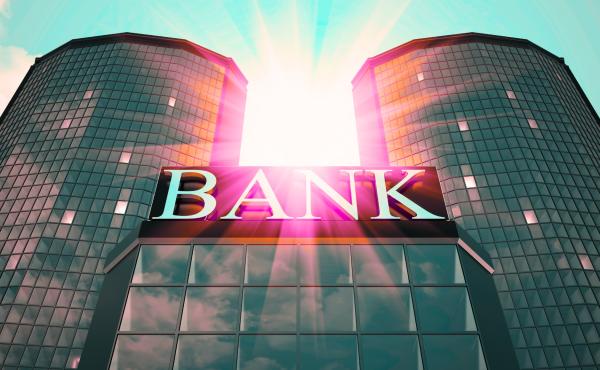A Dive into Termination Risk: Why Climate-Friendly Funds Keep Underperforming

Professor Robert F. Engle will deliver a keynote speech drawing on his paper'Termination Risk and Sustainability' at the 2024 ECGI Responsible Capitalism Summit on 10 September.
--------------------------------------------------------------------------
In the realm of finance, there's a somewhat unfortunate phenomenon where doing the right thing for the planet can result in rather underwhelming portfolio returns. Professor Robert Engle’s paper, "Termination Risk and Sustainability," delves into this paradox with the analytical depth you would expect from the Nobel Laureate and Co-Director of NYU Stern's Volatility and Risk Institute.
The Dilemma of Uncertain Termination Dates
The paper essentially argues that businesses with uncertain termination dates tend to underinvest to avoid ending up with stranded assets when the proverbial curtain falls. This is not just an abstract notion; it has real implications for industries like fossil fuels and, by extension, for those investors keen on green and sustainable portfolios.
Let's break this down a bit. Imagine you own a beachfront hotel, and you've been told that in an uncertain number of years, rising sea levels will engulf your property. Would you invest millions in a swanky new wing with a 20-year payback period? Of course not. You'd tighten your purse strings, minimize your exposure, and wait. Similarly, fossil fuel companies, acutely aware of impending environmental regulations and market shifts, are pulling back on long-term investments, pushing up energy prices and, somewhat ironically, stock prices.
The Paradox of Sustainable Investments
This is where it gets intriguing. Many funds that brand themselves as "sustainable" shy away from fossil fuel investments for obvious ethical reasons. The immediate consequence? They miss out on the surge in stock prices that results from the constrained supply of fossil fuels. As a result, these funds underperform compared to the broader market, which is enjoying the spoils of higher energy prices.
Engle’s paper walks us through this scenario in meticulous detail. The underlying premise is that climate change represents a long-run risk, which is a fancy way of saying that bad things might happen in the future. These risks are not just physical, like hurricanes or rising sea levels, but also transitional. Governments might slap regulations or taxes on fossil fuels, turning today’s cash cows into tomorrow’s stranded assets.
Market Reactions and Investor Behavior
The problem is compounded by the way companies and investors react to these long-run risks. Take our beachfront hotel, for example. When investors get wind of its likely doom, its value plummets. However, new investors, enticed by the prospect of short-term profits, jump in, driving up the price temporarily. This cycle of fear and greed is a hallmark of markets facing uncertain futures.
Fossil fuel companies find themselves in a similar bind. The writing on the wall is clear: decarbonize or perish. But with no clear endgame in sight and the persistent allure of short-term profits, these companies continue to operate in a sort of twilight zone, where they're profitable for now but doomed in the long run. Investors, meanwhile, are left grappling with the challenge of balancing moral and financial imperatives.
The Role of Government Policies
Government policies play a pivotal role in this drama. Engle outlines three main strategies for decarbonization: carbon taxes, subsidies for renewables, and emission regulations. Each has different impacts on fossil fuel companies and, by extension, their stock prices. Carbon taxes squeeze profits by increasing costs, subsidies for renewables make fossil fuels less competitive, and emission regulations can either hike prices or cut them, depending on how they’re structured.
The third option, of course, is to do nothing and leave it to the market. In this laissez-faire scenario, we might see a gradual retreat from fossil fuels, driven more by consumer and investor preferences than by government diktats. This could lead to higher energy prices and increased profits for fossil fuel companies in the short term, but it does little to avert the long-term crisis.
Engle’s analysis suggests that fossil fuel companies might eventually pivot to renewable energy, but this transition is fraught with challenges. Renewables are a different beast altogether, with distinct technical and financial demands. While it might make sense for oil giants to diversify, the complexities of managing both fossil and renewable assets could dilute their focus and effectiveness.
The Future for Sustainable Investors
So, where does this leave sustainable investors? In a bit of a pickle, it seems. On the one hand, shunning fossil fuels aligns with long-term ethical and environmental goals. On the other hand, this strategy can lead to underperformance in the short term, especially when fossil fuel prices are riding high. The key takeaway from Engle’s paper is that while the transition to a greener economy is inevitable, it's going to be messy, and navigating it requires a nuanced understanding of the interplay between market forces and long-term risks.
In the end, the message is clear: doing the right thing for the planet may not always pay off immediately in financial terms. However, as we grapple with the realities of climate change and the need for sustainable investments, the hope is that better policies and more informed investment strategies will eventually lead to outcomes that are both profitable and planet-friendly. Reducing uncertainty through the introduction of measures, whatever they include, may potentially speed up transition deadlines. For now, though, sustainable investors might need to brace for turbulence on the road to a greener future.
----------------------
Robert Engle, Professor Emeritus of Finance at New York University Stern School of Business, was awarded the 2003 Nobel Prize in Economics for his research on the concept of autoregressive conditional heteroskedasticity (ARCH). Professor Engle is the Co-Director Director of the Volatility and Risk Institute and a co-founding president of the Society for Financial Econometrics (SoFiE), a global non-profit organization housed at NYU. Before joining NYU Stern in 2000, he was Chancellor’s Associates Professor and Economics Department Chair at the University of California, San Diego and Associate Professor of Economics at MIT. He is a member of the National Academy of Science.
Read more:
- Access the paper here.
- Submit questions for the authors here.
- Register to join us in Berlin on 10th September.


